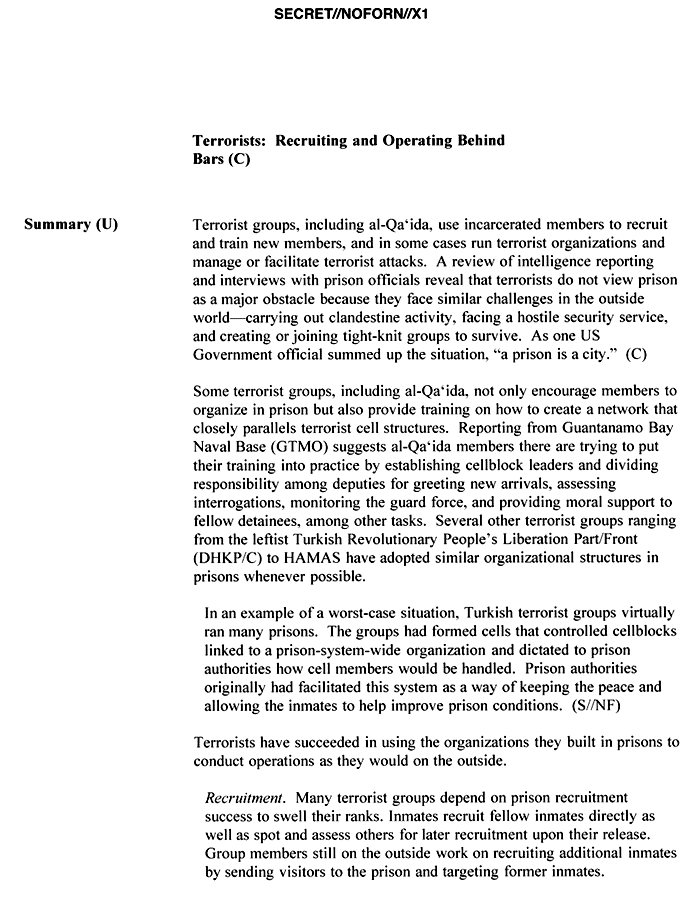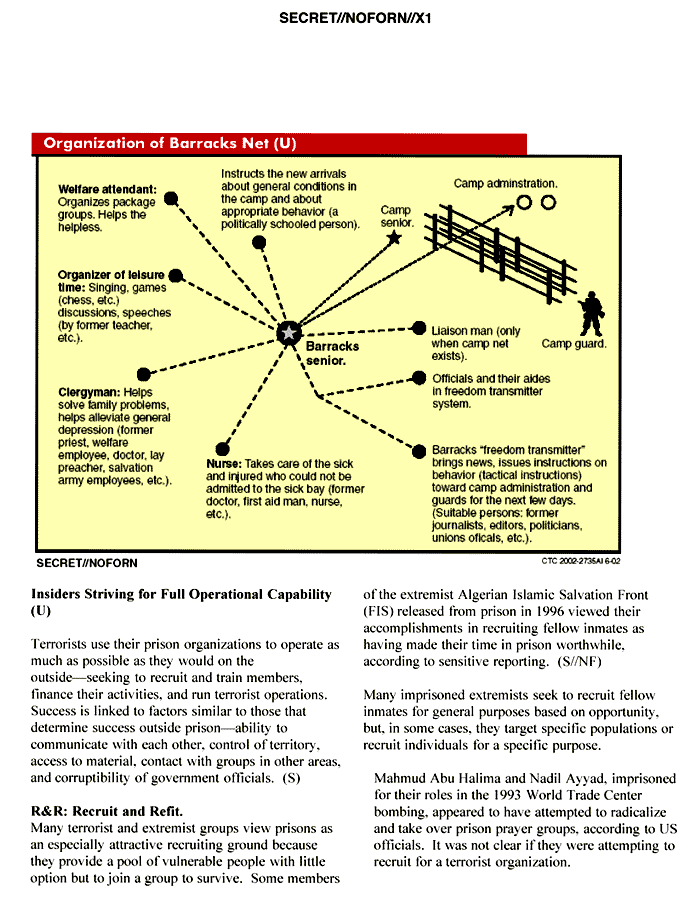Coming To A Prison Near You?
CIA: Incarceration no deterrent to al-Qaeda organizing efforts

View Document
Coming To A Prison Near You?
-
Coming To A Prison Near You?
-
Coming To A Prison Near You?
-
Coming To A Prison Near You?
-
Coming To A Prison Near You?
-
Coming To A Prison Near You?
-
Coming To A Prison Near You?
-
Coming To A Prison Near You?
-
Coming To A Prison Near You?
-
Coming To A Prison Near You?
-
Coming To A Prison Near You?
-
Coming To A Prison Near You?
-
Coming To A Prison Near You?
MAY 26--With opponents of the plan to close the Guantanamo Bay detention facility warning of the dangers of placing hundreds of suspected terrorists in the federal prison system, a secret Central Intelligence Agency report about al-Qaeda's recruiting and organizing tactics behind bars is worth another look. As TSG previously reported, the CIA document details the difficulties faced by jailers worldwide in countering efforts by imprisoned disciples of Osama bin Laden. The report, a copy of which you'll find here, was prepared in August 2002 by the CIA Counterterrorist Center's Office of Terrorism Analysis. Intelligence officials who monitored detainee behavior at Guantanamo Bay concluded that while inmates were organizing and communicating in accordance with al-Qaeda training methods, prison officials were unable to counter these moves without the aid of 'inside sources.' Suspected terrorists sought to 'put their training into practice by establishing cellblock leaders and dividing responsibility among deputies for greeting new arrivals, assessing interrogations, monitoring the guard force, and providing moral support to fellow detainees, among other tasks,' according to the report 'Terrorists: Recruiting and Operating Behind Bars.' Terrorists 'approach incarceration as an opportunity to advance the interests of their groups through forming new connections or reinforcing existing ones,' according to the document, which was prepared with information contained in reports from the CIA, FBI, Department of Defense, National Security Agency, and foreign intelligence services. While noting that 'harsher disruption efforts are needed once terrorists have established a substantial prison network,' the CIA--which, of course, popularized use of the waterboard--noted that such efforts could be 'constrained by countries' need to follow the rule of law and other typical investigative hurdles.' (12 pages)

























